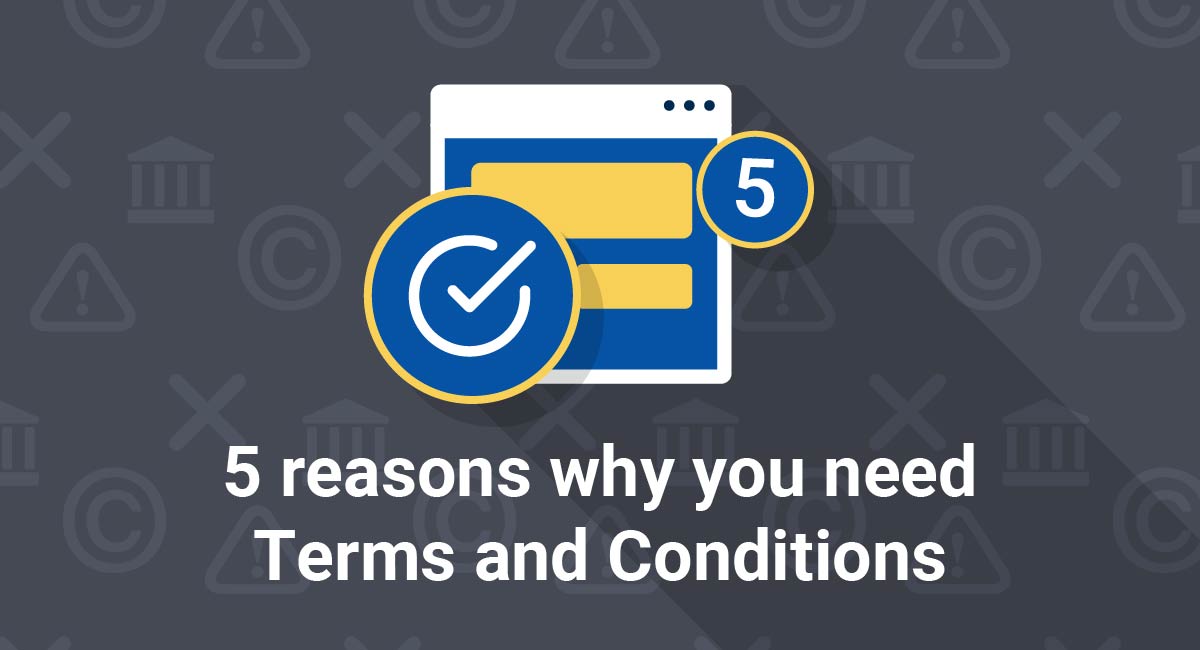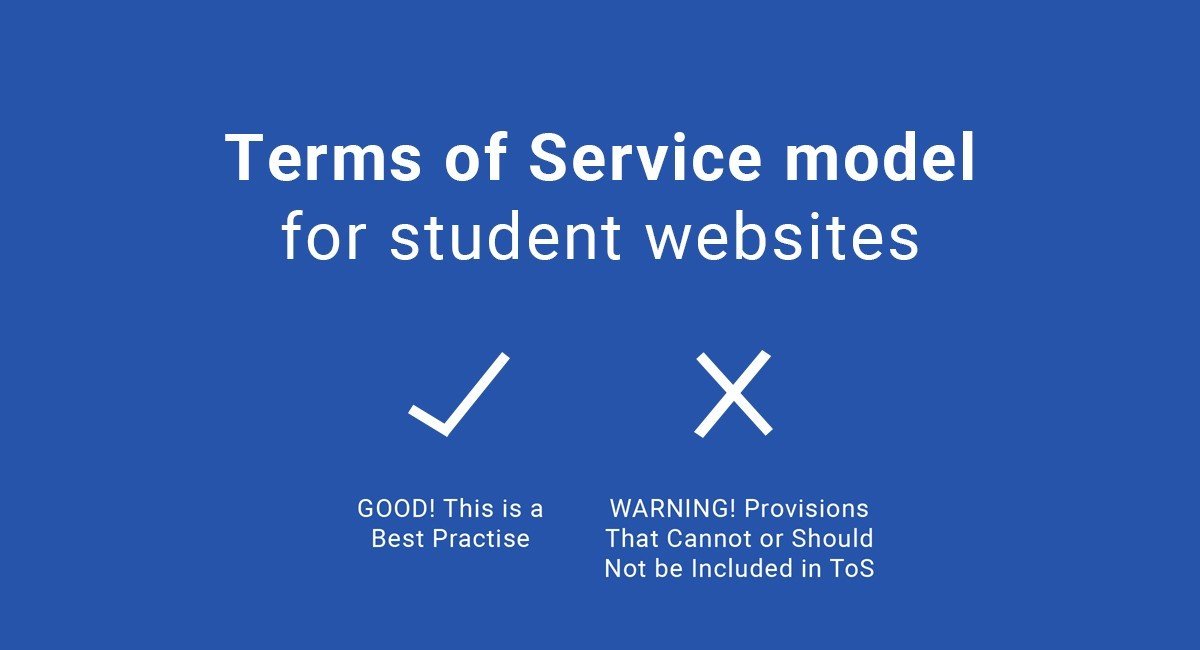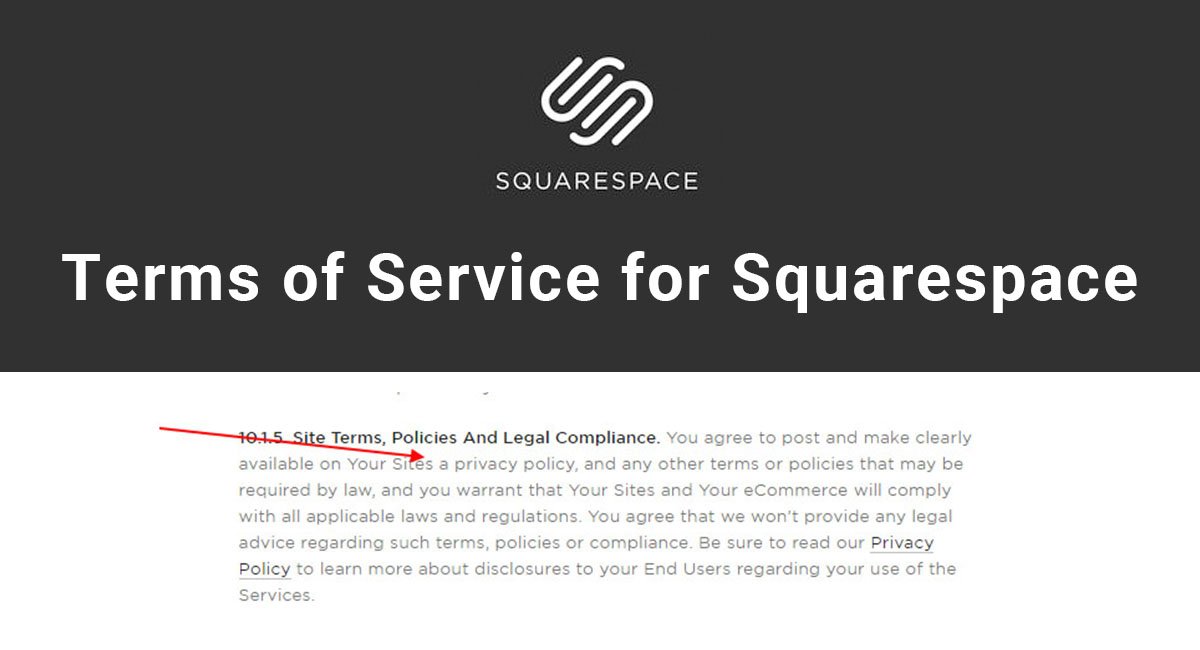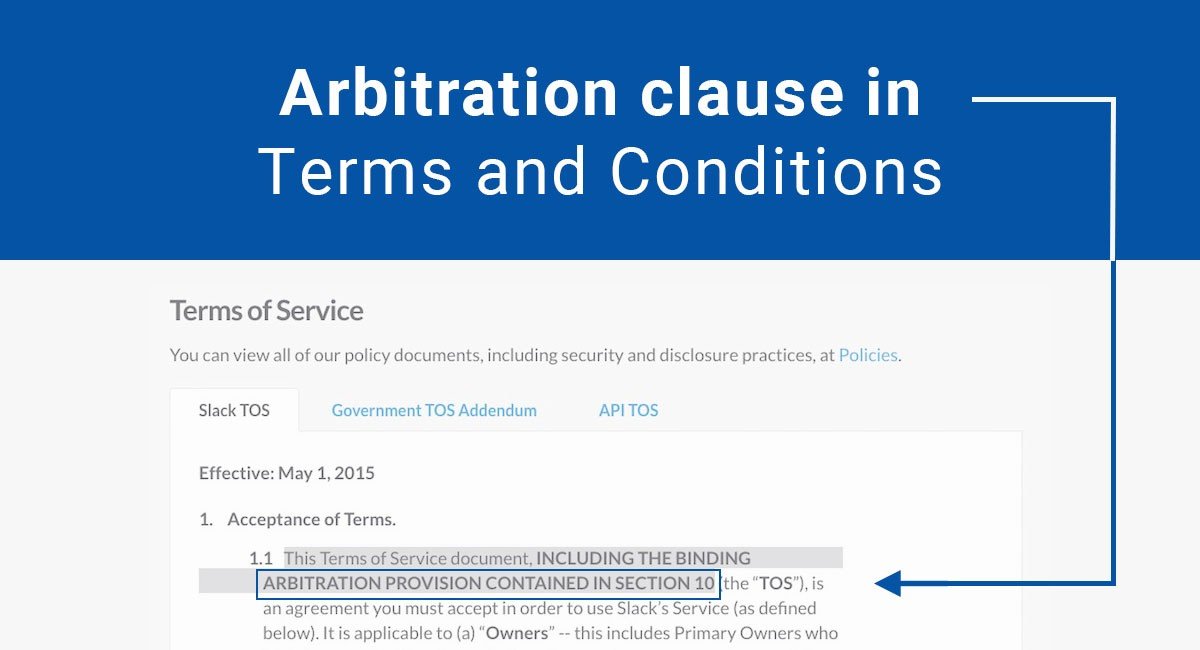While a Terms and Conditions agreement is recommended to have for your website, it's not required by law to have this agreement.
Only Privacy Policies are required by law if you collect personal data from your users: email address, first and last names, shipping address, etc.
A Terms and Conditions agreement is also known as a Terms of Service or a Terms of Use agreement:
A Terms of Service Agreement is a set of regulations which users must agree to follow in order to use a service. Terms of Use is often named Terms of Service, Terms and Conditions, or Disclaimer when addressing website usage.
This agreement sets the rules that users must agree to in order to use your website.
Because of its importance, here are 5 reasons why you should have a Terms and Conditions.
Reason #1: Prevent Abuses
A Terms and Conditions acts as a legally binding contract between you and your users.
This is the agreement that sets the rules and guidelines that users must agree to and follow in order to use and access your website or mobile app.
In this agreement, you can include the necessary sections to inform users of the guidelines of using your website or mobile app, what happens if users are abusing your website or mobile app, and so on.
Examples of actions of abusive users can include spamming other users, posting defamatory content or attempting to infect the website or app with malware.
If your website or mobile app hosts content that is generated by users, you can include a clause in the Terms and Conditions to inform users that harmful language won't be tolerated, as well as spamming other users (depending on the function of your website: via public or private messages).
All of these can result in having those users who are found abusing your website temporarily banned.
eBay informs users of the guidelines for using the website in its User Agreement:
![]()
Reason #2: Own Your Content
As the website owner, you're the owner of your logo, content (except for user-generated content, as most websites will inform users that any content created by users is theirs), the design of the website, and so on.
In the Terms and Conditions, you can inform users that you are the owner of such content (as mentioned above) and that the content you own is protected by international copyright laws.
This kind of clause is commonly referred as the Intellectual Property clause, and it usually looks like this:
The Site and its original content, features, and functionality are owned by [Owner of Website] and are protected by international copyright, trademark, patent, trade secret, and other intellectual property or proprietary rights laws.
The Terms of Use page of BBC includes a Rights in BBC Online Services and BBC Content disclosure that clearly explains that the content is owned by BBC:

Reason #3: Terminate Accounts
If Reason #1: Prevent Abuses suggested that you could temporarily ban users, another common clause that Terms and Conditions agreements include is the Termination clause.
This clause informs users that abusive accounts will be terminated and banned from using the service.
The Termination clause is aimed at websites that have a registration section (e.g. user must register before using and/or accessing certain sections of the website), as you can disable or ban the abusive users based on the activity of their accounts.
The Termination clause usually looks like:
We may terminate your access to the Site, without cause or notice, which may result in the forfeiture and destruction of all information associated with your account. All provisions of this Agreement that, by their nature, should survive termination shall survive termination, including, without limitation, ownership provisions, warranty disclaimers, indemnity, and limitations of liability.
Here is how the Terms & Conditions of The Guardian presents this clause:
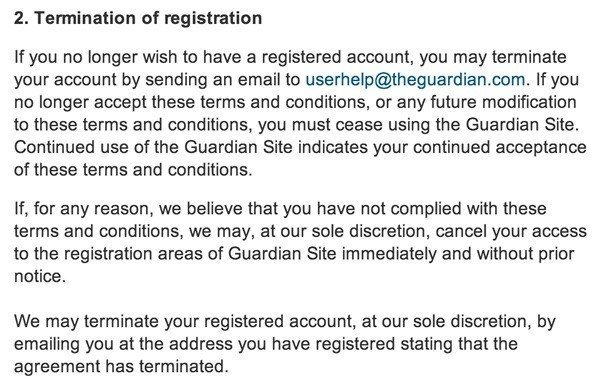
Reason #4: Limit Liability
Terms and Conditions agreements commonly include a warranty disclaimer that tries to limit the website owner's liability in cases where errors are found in the content presented on the website.
This kind of clause notifies users that the owner can't be held responsible for any errors in the content presented, or for the information provided being accurate, complete, or suitable for any purpose.
Reason #5: Set The Governing Law
Usually, the Governing Law clause of a Terms and Conditions agreement refers to the jurisdiction that applies to the terms presented in the agreement.
For instance, if your website is operated by a registered business in the state of New York in the United States, then the governing law of your Terms and Conditions would be presented something like this:
These terms and conditions are governed by the laws of the United States of America and the laws of the State of New York.
If you (or your company) operate the website from London in the United Kingdom, that clause can look something like this:
These terms and conditions are governed by the laws of United Kingdom.
If you operate your website from another country (Australia, UK, Canada, South Africa), update the agreement to include the home country or the country in which your company (that owns and operates the website) is registered in.
How to Create a Terms and Conditions for Your Website

- Click on the "Start the Terms and Conditions Generator" button.
- At Step 1, select the Website option and click "Next step":
- Answer the questions about your website and click "Next step" when finished:
- Answer the questions about your business practices and click "Next step" when finished:
- Enter your email address where you'd like your agreement sent and click "Generate My Terms and Conditions." You'll be able to instantly access and download your new agreement:
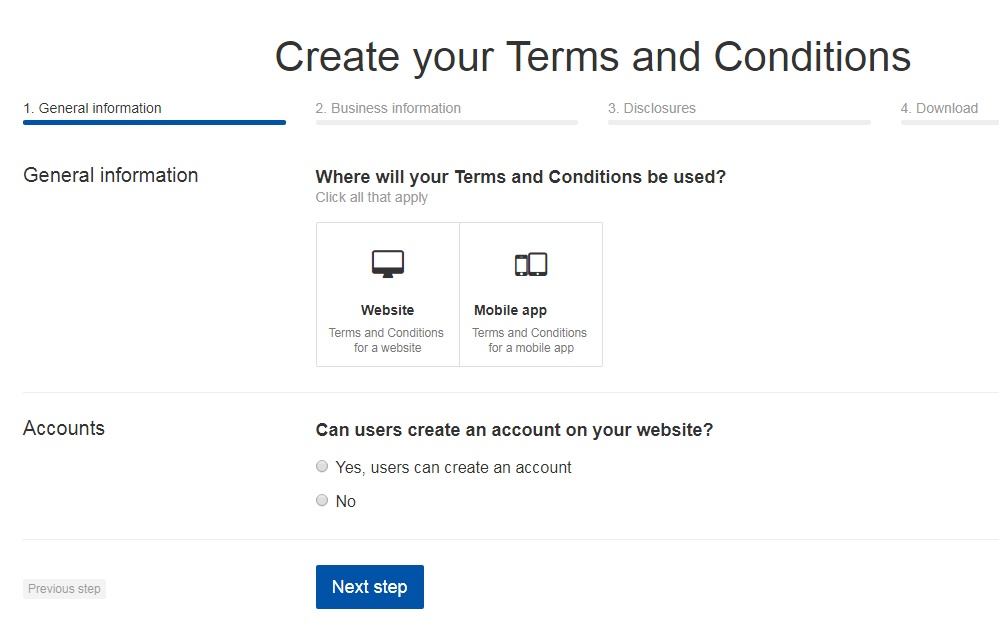
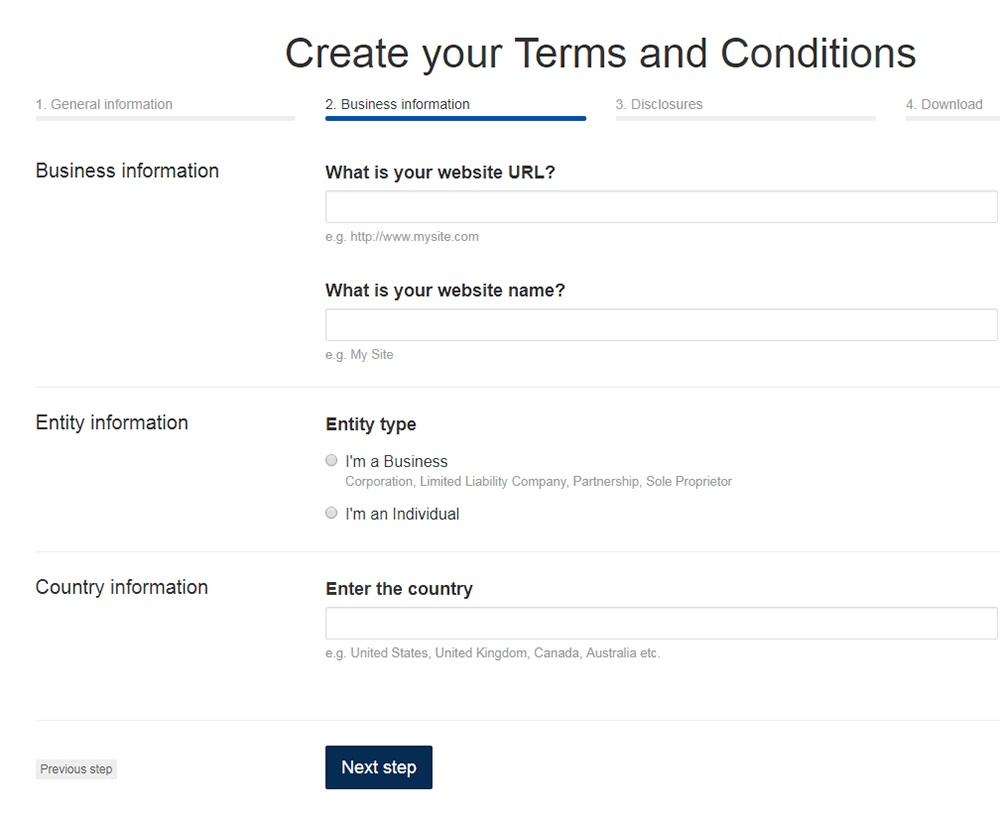
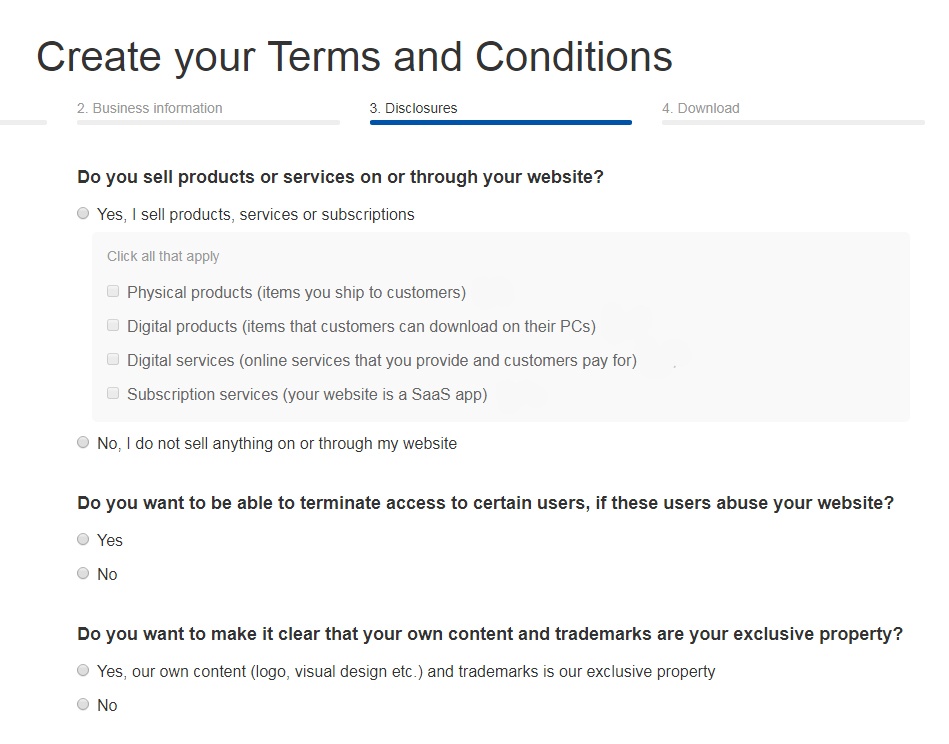
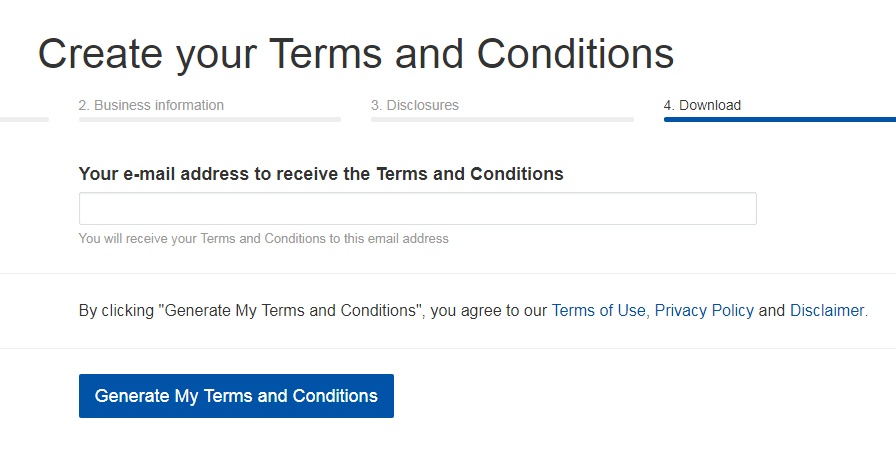

Comprehensive compliance starts with a Privacy Policy.
Comply with the law with our agreements, policies, and consent banners. Everything is included.
